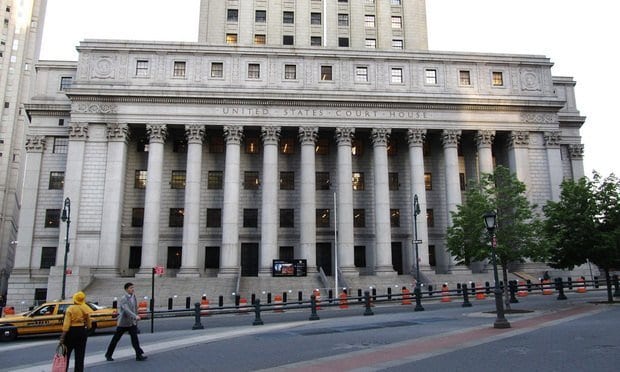
The prosecutor’s opening statements are being heard at the New York trial of Ali Sadr Hashemi Nejad charged with bank fraud and busting US sanctions against Iran.
The Assistant US Attorney explained that under US law it is illegal for an American bank to send US dollars to Iranian companies. But Ali Sadr set up a structure of smoke and mirrors to bypass this restriction starting with procuring passports from himself from Henley & Partners that gave him the citizenship of Saint Kitts and Nevis and helped him disguise his Iranian identity.
Iran is perceived by the United States as a grave threat to its interests. Sanctions are implemented to protect those interests and those sanctions include a ban on practically business dealings with Iran.
Ali Sadr’s father owned several companies, two of which were already the subject of sanctions. The accused’s father set up a company to do business worth around half a billion dollars with Venezuela for which Ali Sadr sought payments in US dollars instead of the Venezuelan currency.
Though payments flowed for a while, the business hit a snag around 2014 when payments stopped. Ali Sadr and his father sought the intervention of the Iranian government. This in spite of the fact that the payments were flowed through companies Ali Sadr set up in Turkey and Switzerland to disguise the ultimate Iranian destination of the wealth. Ali Sadr needed the help of the Iranian government because inspite of all appearances his business was Iranian.
This meant he breached US laws on the six counts he is being charged with.
The Assistant US Attorney told the New York federal court that the government would be presenting evidence that will include emails and letters written by Ali Sadr Hashemi Nejad in which he misled bankers about his nationality and the nationality of his business in order to avoid US sanctions.
Episodes of fraud include doctored contracts that remove the name Iran, instructions to staff to backdate documents and other evidence that shows that Ali Sadr redirected 115 million US dollars from the United States to Iran.
The Assistant US attorney concluded by advising the jury to listen to the evidence and to Judge Nathan’s instructions. “You will reach the only conclusion: the defendant is guilty”.
These updates are based on the reporting of Matthew Russell Lee of Inner City Press.